Search
Search Results

Book Review
The Origins Of War: From The Stone Age To Alexander The Great
Contrary to popular belief, military history does not begin in Greece. In his book, The Origins of War, Arther Ferrill traces the development of war from prehistoric times until the time of Alexander. Ferrill begins his work in an unconventional...

Book Review
Soldiers and Ghosts: A History of Battle in Classical Antiquity
J. E. Lendon in his book, Soldiers and Ghosts: A History of Battle in Classical Antiquity, uses Greek and Roman culture to explain fundamental changes in the conduct of war. Lendon persuasively argues that competition and an obsession with...
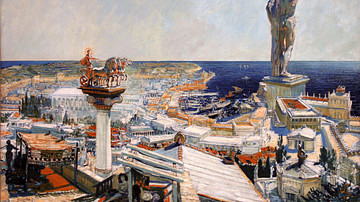
Definition
Colossus of Rhodes
The Colossus of Rhodes was a gigantic 33-metre-high bronze statue of the sun god Helios which stood by the harbour of that city from c. 280 BCE. Rhodes was then one of the most important trading ports in the ancient Mediterranean and the...
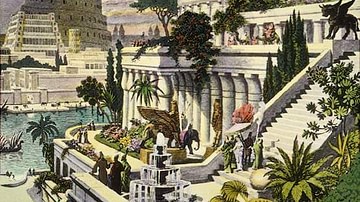
Definition
Hanging Gardens of Babylon
The Hanging Gardens of Babylon were the fabled gardens which beautified the capital of the Neo-Babylonian Empire, built by its greatest king Nebuchadnezzar II (r. 605-562 BCE). One of the Seven Wonders of the Ancient World, they are the only...
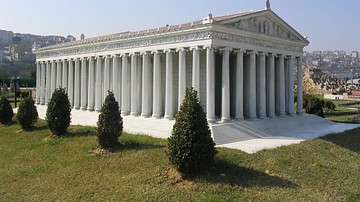
Definition
Temple of Artemis at Ephesus
The Temple of Artemis at Ephesus was located on the western coast of Asia Minor (modern Turkey) and built in the 6th century BCE. Such was its tremendous size, double the dimensions of other Greek temples including the Parthenon, that it...
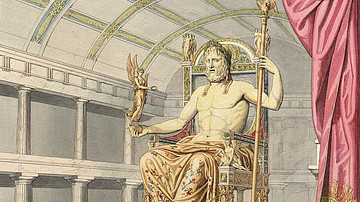
Definition
Statue of Zeus at Olympia
The monumental statue of Zeus at Olympia in Greece was one of the Seven Wonders of the Ancient World. Created in the 430s BCE under the supervision of the master Greek sculptor Phidias, the huge ivory and gold statue was bigger even than...
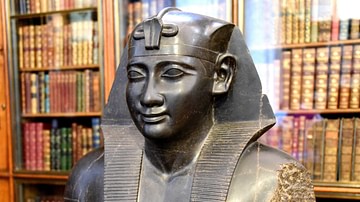
Definition
Ptolemaic Dynasty
The Ptolemaic dynasty controlled Egypt for almost three centuries (305-30 BCE), eventually falling to the Romans. Oddly, while they ruled Egypt, they never became Egyptian. Instead, they isolated themselves in the capital city of Alexandria...
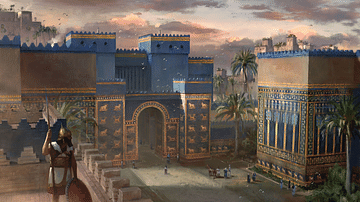
Definition
Ishtar Gate
The Ishtar Gate was constructed by the Babylonian King Nebuchadnezzar II circa 575 BCE. It was the eighth gate of the city of Babylon (in present-day Iraq) and was the main entrance into the city. The Ishtar Gate was part of Nebuchadnezzar's...
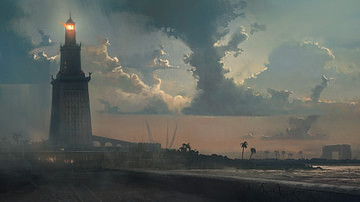
Definition
Lighthouse of Alexandria
The Lighthouse of Alexandria was built on the island of Pharos outside the harbour of Alexandria, Egypt c. 300 - 280 BCE, during the reigns of Ptolemy I and II. With a height of over 100 metres (330 ft), the lighthouse was so impressive that...
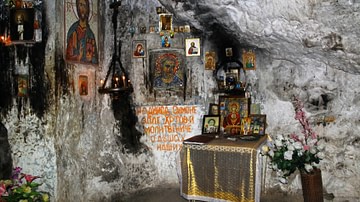
Definition
Zealots
The Zealots were a group of Jews who began to emerge as a religious/political movement around the beginning of the 1st century CE. They strongly opposed Roman rule and turned on everyone, including other Jews, who cooperated with Rome. A...